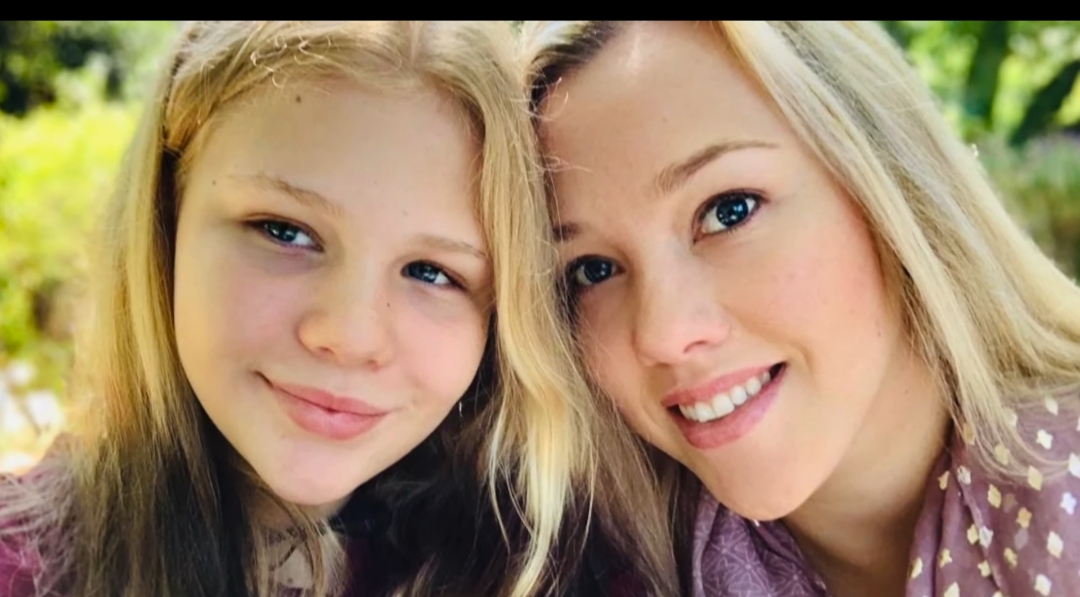During Children in Need 2019, we are raising awareness of Myalgic Encephalomyelitis/Chronic Fatigue Syndrome. We are taking this opportunity to highlight that M.E/C.F.S is a global issue, if not a global crisis.
There are around 25,000 children and young adults in the UK, statistics as to the prevalence of M.E/C.F.S in all age groups are not available in many different countries due to a lack of research. Anecdotal evidence, such as Andrea and An-nel’s, proves M.E/C.F.S exists on the continent of Africa, regardless of whether there are statistics available or not.
Due to the nature of M.E/C.F.S, it was not possible to ask Andrea these questions directly. Stripy Lightbulb’s team member Jackie sent Andrea and An-nel a list of questions to be answered in their own time and in their own words.
Thank you so much to Andrea and her mother An-nel for taking part and sharing their M.E/C.F.S story and photographs with us.
Andrea, what was your life like before M.E/CFS and what is different now?
I use to be a very active and social person. Loved spending time with friends, loved school and my absolute passion was dancing. I did Ballet and Modern dancing, 6 times a week and loved every minute of it.

Now I struggle to walk distances – for example, when we go to the shops or a doctor’s appointment, I need to be in a wheelchair. I am out of breath most of the time. Have all over body pain that I struggle to manage. I struggle to sleep due to insomnia, restless legs and pain.
I struggle to concentrate (I never had a problem in that area) and I also struggle with noise sensitivity.
I feel very isolated and alone. I miss dancing – I had to stop dancing immediately once I was diagnosed and I also had to leave school and are being homeschooled at the moment. It gets very lonely.
Andrea, how has M.E/CFS affected your education?
I always loved going to school. I loved learning and also spending time with my school friends. I started missing more and more school – often weeks at a time before I was diagnosed. Since becoming ill I cannot get up and get dressed to go to school – I spend most of my time in my pajamas at home and in bed.
When I do homeschooling, I can only concentrate for 15 – 30min at a time. Sometimes that is all I can manage in a day. If I’m in a crash, I cannot do any school work at all.
My friends and teachers were very supportive and know what I suffer from, but I don’t think they fully understand what I go through on a daily basis at all.
Andrea, did many people say negative things about you once you found out you had M.E/CFS?
I’ve had my fair share of medical professionals not taking me seriously! Some have simply been downright rude. If a blood test shows nothing out of the ordinary, most doctors simply said – there is nothing wrong with you, or you just need to get to bed earlier etc. Or they would tell my parents that they think I just don’t want to dance anymore or go to school anymore. That made me furious and very disappointed in the doctors that was supposed to be there for me and help me.
I’ve also heard that some people, even friends, spoke behind my back and would doubt the legitimacy of my illness. As if I would suddenly fake being ill and purposefully have no life, no fun and give up everything I love for attention or something.
Only once we managed to see a Professor who knows and understands this illness well, did I get my actual diagnosis.
What child would purposefully want to give up everything they love to lie in bed in isolation all day long. Seriously?
An-nel, how did you know Andrea has M.E/CFS and what advice would you give to parents, health professionals and nurses
We saw a sudden change in our active, energetic daughter. She was out of breath, had a very pale/grey complexion suddenly and everything she did required a lot of energy from her. She had to sit out in dance class as she simply couldn’t keep up with the rest, even though she was the strongest in her class. She had severe headaches, muscle pain, restless legs and developed Insomnia. We became very concerned and took her to many doctors and specialists.
I also have ME/CFS, but I did not know there could be a genetic link and also didn’t want to believe it…. So we looked for any other possible reason for her being so fatigued suddenly. Eventually, after we’ve run out of other options, we took her to a Professor who has a special interest in different types of illnesses. He assessed her thoroughly, sent her for different blood tests and eventually diagnosed her with ME/CFS to our absolute shock and horror. I know what a dreaded disease this is, and the last thing I wanted was for my daughter to have to deal with the same fate.
If you do think your child has ME/CFS or if they’ve been diagnosed with it, get proper training. This is such a complicated illness, and often well-meaning parents can actually make their child’s situation worse if they don’t know exactly what to do and how to support their child.
Andrea, what are some of the things the people around you have done to help support you and how does it make you feel?
I am very fortunate to have amazing support from my family and some friends. My grandparents moved in with us to help care for me and my mom, who also suffers from ME/CFS. I’m being homeschooled through a program that is flexible and helps me to be able to work when I can and rest when I can’t. If I find that working in the late evening is easier that day, I can.
When a friend comes to visit, they know that we can only sit on my bed and chat or do something that does not require a lot of energy from me. They understand that we cannot do anything loud – as I am very sound sensitive.
They also understand when I have to cancel short notice as I don’t always know how I will feel from day to day and even hour to hour sometimes.
That makes me feel extremely grateful and loved. As there are many out there who simply does not understand. Because this is mostly an invisible illness. When I am out for a little while, even in my wheelchair, I usually look healthy, so it’s hard for others to see how I suffer afterward.
An-nel and Andrea, without proper support where do you think you would be right now?
I honestly don’t know what we would’ve done without the support from my family and friends. This illness is so misunderstood. Just the fact that we have people who will speak for us when we can’t. Or understand our limitations, means the world to us.
I cannot stand or be upright for long, which meant that I had to stop cooking and also had to stop driving as the mental exertion became too much. I also cannot work, so I am so fortunate to have a loving and understanding husband who works hard for us.
An-nel, as a person with M.E yourself and having a daughter with M.E how does it feel when people don’t understand the things you go through?
It is extremely hard! I try to explain, but unless you physically see us in a crash and on our bad days, it’s not really possible for people to imagine what we go through.
The worst part for me is when medical professionals refuse to believe that we are ill and act as if our very physical symptoms is somehow manifested in our mind.
In fact, it make me furious that it has taken so many years for any awareness whatsoever and that there are STILL medical professionals that don’t believe in this illness and the severe suffering it causes. I, myself, have been ill for 27 years already! Severely sick for the past 6 years.
Having my young daughter also suffer from this dreaded illness is an absolute nightmare!
What can people do to help?
Please educate yourself on this illness. It means the world to a sufferer if the person in your life has at least taken the time to understand the illness. Take the Stripy Lightbulb E-course to educate yourself and then help educate others.
If you can, help raise awareness with us by sharing our awareness posts on social media, etc. Every little bit of awareness helps.

Brilliant coverage and awareness of this very serious illness! Well done Stripy Lightbulb and Sally Callow